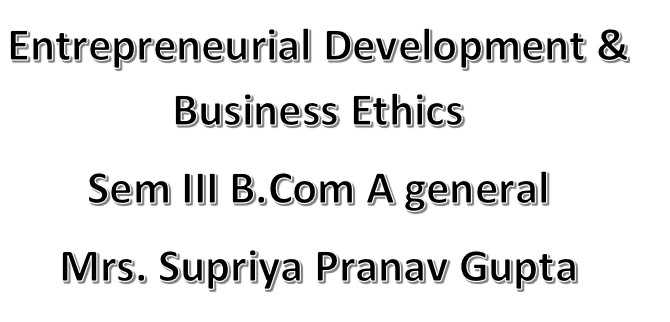| 3 | Income Tax-I | |
| CO1 | The Course will provide the students an understanding about the Indian income tax system. | |
| CO2 | Get acquainted with the knowledge of concepts, principles, and rules of taxation of individuals and small businesses | |
| CO3 | Will be able to apply the tax laws and provisions for the computation of Tax Liability | |
| CO4 | Will be able to recognize tax planning opportunities and recommend appropriate tax-saving strategies for decision making. | |
| CO5 | unerstand the logic behind implementation of Income tax in each heads of Income. | |
| CO6 | Know about various legal aspects relating to Income received under any head as per Incme tax Act. | |
- Teacher: VINOD PATTATHIL
| CO1 | Prepare Financial Statements in the form suitable for publication. |
| CO2 | Understand consolidated financial statements. |
| CO3 | Understand the Accounting concepts involved in Partnership form of business. |
| CO4 | Understand about the procedures involved when debentures and shares are issued by the company. |
| CO5 | Analyse the reasons and the logic behind the accounting procedures laid in the Act. |
| CO6 | Get the practical exposures towards the few financing operations of the company. |
| CO7 | Understand the context in various articles relating to the IPO’s and redemptions done by few companies. |
| CO8 | Understand various case studies relating to admission, retirement of partners and dissolution of partnership firms |

- Teacher: DURGA VAIDEHI G
COURSE OBJECTIVE:
Primary objective of the course is to expose the students of business management to appreciate and understand the concepts and fundamentals of entrepreneurship and to make them understand the process of business idea generation and converting the idea into a business model. While carrying out this process they also understand the role of government and the machinery that renders support in terms of policies assistances, etc. For creation sustenance of growth of the enterprises by the individuals.
Course Outcomes:
| CO1 | Students apply an ethical understanding and perspective to business situations |
| CO2 | Students understand the development of entrepreneurship as a field of study and profession |
| CO3 | Students identify the role of an entrepreneur by analyzing the various present opportunities and challenges in developing a new venture |
| CO4 | Students know the various entrepreneurial opportunities in different fields/segments/sectors. |
| CO5 | Students learn the importance of sustainable competitive advantage with innovation and creativity |
| CO6 | Students realize the critical roles of marketing research, competitive analysis and consumer-value in business plan |
REFERENCE:
Vasant Desai - Entrepreneurial Development and Ethics, Himalaya publishing house.
Web links:Topic wise links will be provided in class.
Instructions to the Students:
[1] Students are requested to be in class prior to the faculty entering into the class.
[2] A late entry (After 5 Minutes of the prescribed session hour i.e., 300 Seconds) into the class is strictly prohibited.
[3] Once session begins, students are not allowed to go outside; case is different for valid reason.
[4] Students are advised to attend all sessions without fail (Maintain Minimum 75% Attendance).
[5] Every day questions will be asked on the topics covered in earlier sessions, students should be prepared to give the answers.
[6] Students are advised to carry Pen and Running Notes to each and every session compulsorily.
[7] Students are requested not use Mobile Phones during the session.
[8] If Student is found using Mobile Phones during the session, mobile will be confiscated and will be returned only at the end of the semester. Hence students are advised to give landline number of college information centre to their family members for emergency purpose.
[9] Students has to complete their assignments and projects as on prescribed time limit.

- Teacher: SUPRIYA PRANAV GUPTA